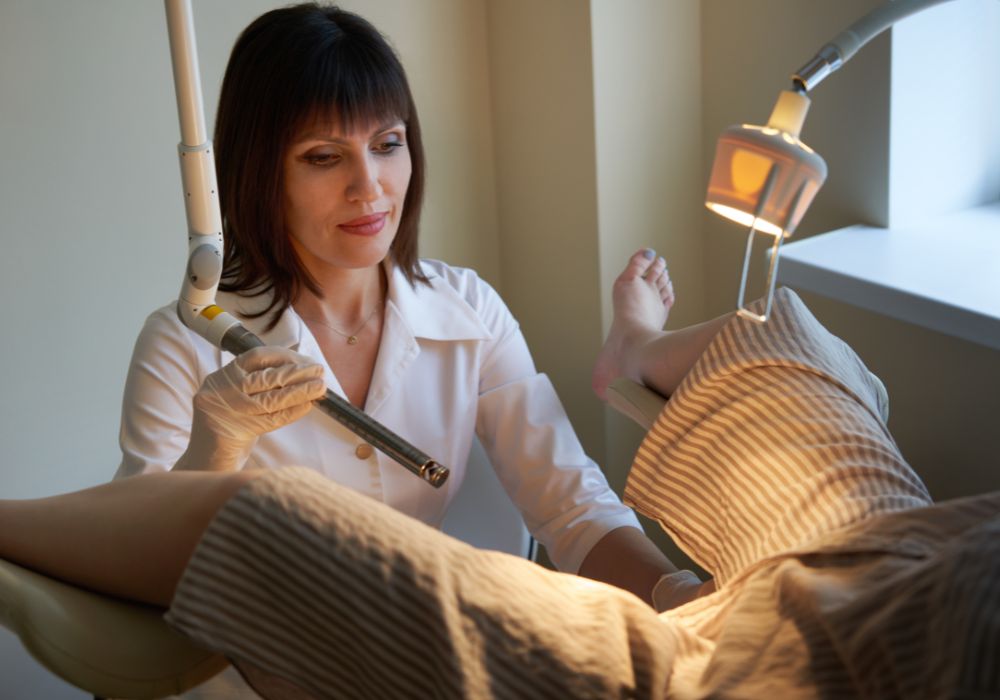Maintaining good vaginal health may not always be straightforward, but everyday actions can make a difference. Eating healthily, exercising regularly and practicing good hygiene are all ways you can prevent problems in this area.
Avoid using perfumed soaps or shower gel, which may irritate and disrupt the natural balance of bacteria and pH levels in your vulva, and double-dipping can remove vital good bacteria and cause yeast infections. Douching may also remove these beneficial microbes and increase yeast infections.
Eat a Healthy Diet
Vaginal health depends heavily on natural secretions and immune defense mechanisms, but eating healthily is also crucial. Avoiding processed food products laden with additives will support your body and minimize inflammation in this sensitive area of the pelvis.
Add fruits and vegetables, lean proteins, whole grains and probiotics to your diet in order to support the body’s natural defenses. Probiotics are especially helpful at introducing beneficial bacteria into the vagina and preventing an overgrowth of bad ones that lead to infections such as bacterial vaginosis (BV). You can find probiotics in yogurt with active cultures, kefir, kimchi, sauerkraut or probiotic supplements like Good Girl Probiotics if necessary.
When selecting meat or dairy products, opt for organic options without hormone injections as conventional ones could contain harmful hormones that could disrupt your hormone balance.
Get Regular Exercise
Healthy vaginas have an optimal balance of bacteria that maintain an acidic environment to protect them against infection. When estrogen levels fluctuate throughout menstruation, however, this balance can become off and cause issues like yeast infections, itching or irritation to arise.
Kegel exercises can help keep the muscles of your pelvic area strong and healthy. These straightforward exercises involve clenching and then relaxing pelvic floor muscles – perfect for anytime or any place!
Washing your vulva, anus and genitals daily is key to vaginal health, but beware using soap; instead use only gentle unscented cleanser around the outer area each time – discharge naturally cleans itself from within, so only wash outer area not inside! Also ensure to wear breathable workout clothing which allows sweaty clothing to evaporate as soon as possible to reduce friction and avoid chafing.
Take a Probiotic Supplement
Probiotics have long been touted for their benefit to our digestive health, but they can also play an essential role in supporting women’s gynecological wellbeing. Probiotics introduce beneficial microorganisms into your bacterial ecosystem that may prevent or treat common issues like bacterial vaginosis and yeast infections.
Lactobacilli are beneficial bacteria that help maintain an acidic vaginal environment, protecting you from harmful bacteria and pathogens that might otherwise invade. By attaching themselves directly to the vulva and taking up space in its confines, less desirable organisms have less room to survive and flourish.
Vaginal probiotic supplements can be found in various forms on the market, from pills and suppositories you insert directly into your vulva to products labeled “women’s health.” To find one specifically targeted towards you, look for products containing strains of Lactobacillus such as L. crispatus, L. rhamnosus or L. iners; clinical trials suggest these strains can prevent and treat BV, yeast infections and urinary tract infections while increasing immunity function, improving bowel movement or even decreasing inflammation.
Talk to Your Healthcare Provider
If you detect an unusual smell, color, or consistency to your vaginal discharge, seek medical advice immediately. While it could simply be normal, an infection could also be present and require further attention from medical staff.
If bacteria become out of balance in your vagina, their pH balance changes and bacterial vaginosis (BV) occurs – leading to symptoms including itching, burning and tingling as well as thicker-than-normal vaginal discharge and painful itchy rashes.
Certain foods, like probiotics, yogurt and kimchi can help prevent BV. But if you consume lots of processed foods, the beneficial bacteria in your body could become outnumbered by harmful ones and lead to the development of BV.
Attaining vaginal health requires engaging with healthcare providers about your practices, especially regarding vaginal irritation prevention strategies such as using plain or unscented soap to wash around the outside of the vulva and refraining from any products intended to enter directly into the vagina.


